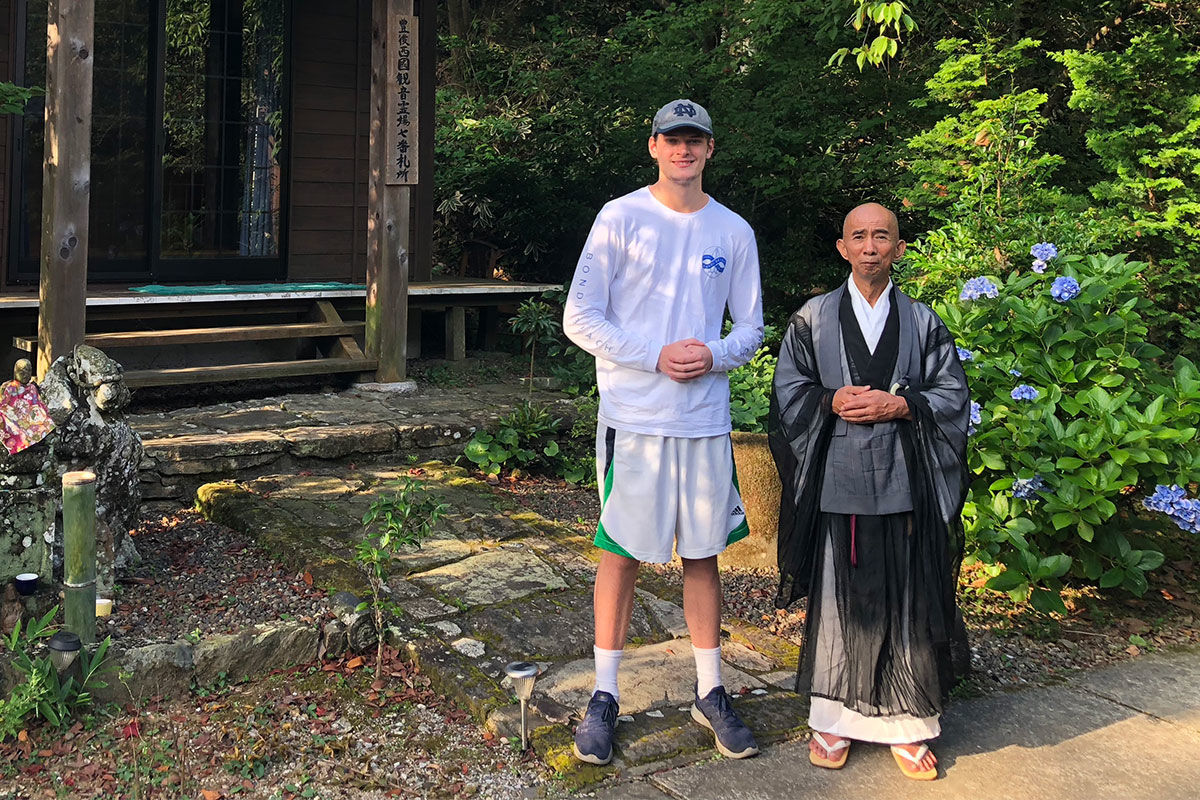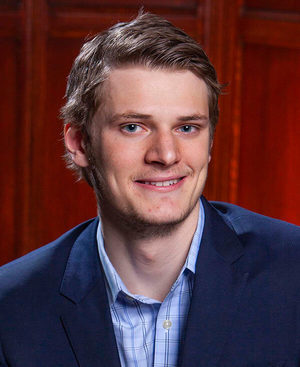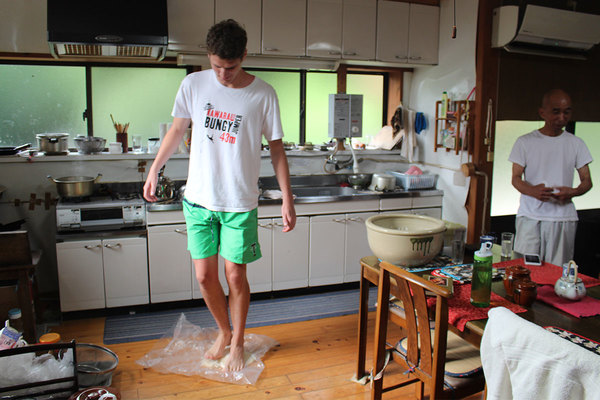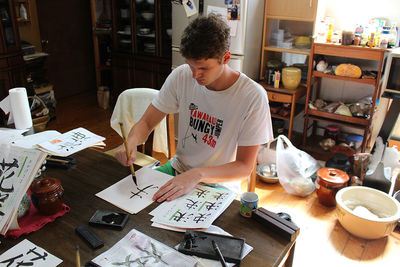 Senior Colin Rahill spent six weeks last summer in Japan, including a month living at the Shoganji Temple with a Zen monk.
Senior Colin Rahill spent six weeks last summer in Japan, including a month living at the Shoganji Temple with a Zen monk.
Colin Rahill’s time at Notre Dame has been defined by learning from some of the world’s great thinkers — whether it be on paper or in a temple on the other side of the globe.
 Colin Rahill
Colin Rahill
An English and philosophy major whose senior thesis focuses on the works of Percy Shelley and Soren Kierkegaard, Rahill spent six weeks last summer in Japan, including a month living at the Shoganji Temple with a Zen monk, Jiho Kongo.
“I basically mimicked the monastic lifestyle and tried to live the way that he was living,” Rahill said.
With funding from the Flatley Center for Undergraduate Scholarly Engagement and the Liu Institute for Asia and Asian Studies, Rahill’s trip first involved two weeks of visits to various temples and memorials in Tokyo, Kyoto, and Nara. He knew he wanted the trip to culminate in a retreat, and he first developed connections with temples in India, which then eventually directed him to Kongo, who agreed to give Rahill the immersive experience he sought.
Every day at 5:30 a.m., Rahill accompanied Kongo as he said a chant for 30 minutes, followed by an hour of meditation. When the time was up, Kongo opened his eyes and rang a bell — at the exact second the 60-minute period was over — without using a clock.
“I wouldn’t have been able to understand something like ‘selflessness’ unless I was there. I wouldn't have understood the practices that these thinkers prescribe, such as meditation. In a Western framework, we're all about researching and writing down our thoughts, but over there it's about getting rid of thought and just feeling.”
“I actually opened my eyes to see this happening, because it's just so hard to sit still for a long time,” he said. “It absolutely blew my mind how he had that sense of time,” Rahill said.
In addition to observing Kongo’s lifestyle, Rahill helped with the daily maintenance of the temple and was given the chance to read ancient texts.
 Rahill helping Jiho Kongo make noodles.
Rahill helping Jiho Kongo make noodles.
“He had scrolls in his temple that were over 1,000 years old with original writing, and he just handed them to me,” Rahill said.
Rahill has channeled this experience into his senior thesis on the ideas of “mystics” in both the Western and Eastern traditions. Rahill is studying the Western works of Shelley and Kierkegaard and comparing their viewpoints and religious experiences with the Eastern practice of Zen.
“The experience of God is characterized in all these different traditions and thinkers as an experience of selflessness, whether it's in Zen losing yourself into the universe as a whole and the universal energy, or in Kierkegaard losing yourself in God,” Rahill said.
The experience of living in Shoganji gave Rahill a personal connection to the project.
“I wouldn’t have been able to understand something like ‘selflessness’ unless I was there,” Rahill said. “I wouldn't have understood the practices that these thinkers prescribe, such as meditation. In a Western framework, we're all about researching and writing down our thoughts, but over there it's about getting rid of thought and just feeling.”
Rahill traveled to Harvard University in January to share his research at the National Collegiate Research Conference, a trip funded by the Institute for Scholarship in the Liberal Arts.
As a strong advocate for both of his majors, Rahill often talks to students about the benefits of philosophy and English and the frequent intersection of the two.
“The liberal arts are about filling the student with wisdom to make good choices to help people,” he said, “and to formulate more ideas for what it means to live a good, human life.”
 Next year, Rahill will begin a master’s degree in English studies at Cambridge University and continue expanding his research on religious experience and mysticism.
Next year, Rahill will begin a master’s degree in English studies at Cambridge University and continue expanding his research on religious experience and mysticism.
Next year, Rahill will begin a master’s degree in English studies at Cambridge University and continue expanding his research on religious experience and mysticism. After graduate school, he plans to spend a year in South Africa doing service, a decision inspired by the humble lifestyle at Shoganji Temple.
Rahill will then pursue a law degree and hopes to examine the role of ethics in artificial intelligence, a growing problem he will address with the skills and wealth of knowledge he’s gained from his time at Notre Dame.
“Arts and Letters fills a person up with the greatest ideas that have ever been written down on paper or preached by many of the smartest people to ever live,” he said. “And they're ideas that everyone should hear.”


